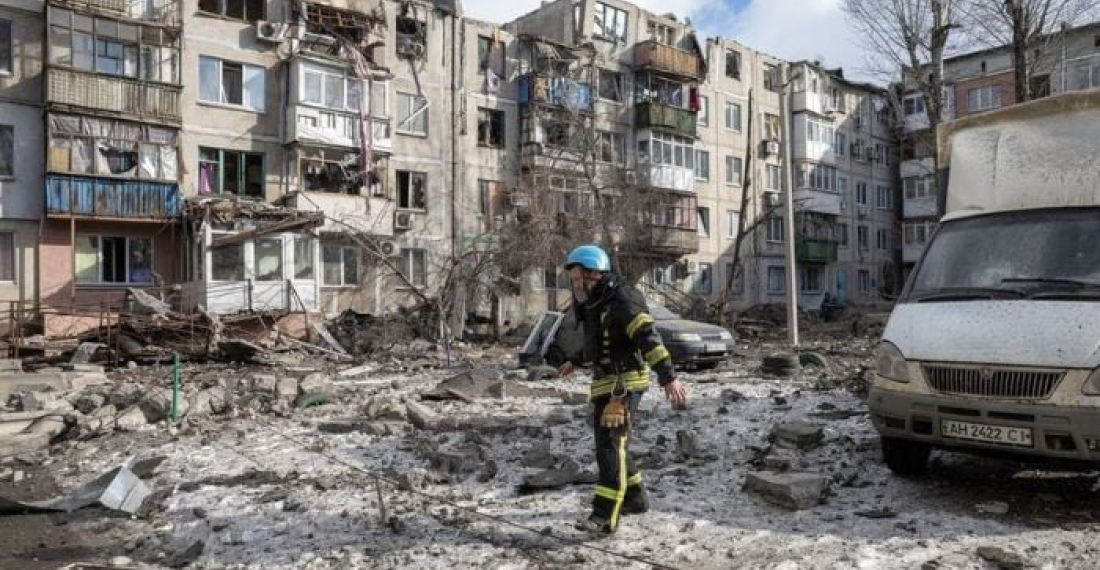Russia has unleashed a 15th wave of missile strikes against Ukraine overnight on Thursday (16 February) after reportedly sustaining very heavy losses in Ukraine's eastern Donbas region.
According to the Commander-in-Chief of Ukraine's armed forces Valery Zaluzhny, overnight Russia launched 36 air and sea-based cruise, guided air-to-surface, and anti-ship missiles. He added that 16 of them were shot down by Ukrainian air defence.
In a post on Telegram on Thursday morning, Ukraine's Deputy Defence Minister Hanna Maliar said, "the situation [in the East] is tense. Yes, it is difficult for us. But our fighters are not allowing the enemy to achieve their goals and are inflicting very serious losses."
The latest wave of strikes comes after the military think tank, The Institute for Strategic Studies, suggests that Moscow's has lost as much as 50% of its pre-invasion fleet of modern T-72B3 and T-72B3M main battle tanks.
Meanwhile, the UK Defence Secretary Ben Wallace has suggested that as many as two-thirds of Russia's tanks could be either "destroyed or broken". Speaking to the BBC on Wednesday (15 February), Mr Wallace added that they believe that as much as 97% of Russia's entire army are now in Ukraine.
Fears of a renewed Russian offensive, claims that it has already started
In the run-up to the first anniversary of Russia's full-scale invasion of Ukraine, Kyiv has become increasingly concerned about the possibility of a renewed mass offensive from Russia in an attempt to take the entirety of Ukraine's Donbas region by March.
The recent uptick in fighting in Ukraine's east has however led to suggestions that Russia's renewed offensive has come earlier than expected. Ukraine's President Volodymyr Zelensky has suggested that Russia was in a hurry to launch its latest push before Ukraine can launch a spring counteroffensive after taking delivery of arms donated by western allies.
Despite the renewed offensive, UK Defence Secretary Ben Wallace added that Russia had been unable to "punch through" Ukraine's defences.
In its latest update on Thursday morning, Ukraine claims that Russia has lost over 140,000 troops since the beginning of its full-scale invasion of the country on 24 February 2022.
source: commonspace.eu with agencies
photo: Reuters







